
Now that the dust has settled following the 2020 Oscars, we can finally appreciate Bong Joon-ho's brilliant movie Parasite for what it is.
When separated from the awards conversation, Bong's movie more than stands up as a razor-sharp, funny and fiendishly entertaining dissection of the class divide. Although it's set in South Korea, and features many cultural specifics, this story of the haves and have-nots could be applicable to any country throughout the world.
With Parasite returning to Cineworld in its black and white presentation, here are seven classic scenes that have got under our skin.
WARNING: PARASITE SPOILERS AHEAD
1. Wi-fi and fumigation
Bong's economical and pacy storytelling wastes no time in introducing us to the lower-class Kim family. They are literally and figuratively a step below those they aspire to become – even the front room of their apartment is located below street level.
Bong's twisted sense of humour is immediately evident when the Kims are compelled to scurry around, not unlike animals or insects, to locate the wi-fi signal that has suddenly been cut off. (They eventually find a new source next to the toilet.) And when we glimpse the Kims 'enjoying' the benefit of free street fumigation to rid their home of stink bugs, we're already well-versed with their lifestyle and motivations.
2. Replacing the housekeeper
In Bong's devious and dark world, the family that deceives together, stays together. The Kims are very efficient at inveigling their way into the lives of the upper-class Park family, whose lavish, glass-fronted home is, tellingly, located towards the top of the city, and accessed only through a keypad-controlled gate. To the sound of composer Jung Jae-il's ironically jaunty score, we're invited to revel in the audaciousness of the Kims, as each family member conspires to replace the equivalent worker in the Park household, and therefore make the deception complete.
It's both unnerving and hilariously funny, with the crisp editing, fabulous music and sharp performances pulling us into a modern-day nightmare. The coup-de-grace occurs when Kim patriarch Ki-taek (Song Kang-ho) convinces the Parks' mother, Choi Yeon-gyo (Cho Yeo-jeong), that her longstanding and loyal housekeeper, Gook Mong-gwang (Lee Jeung-eun) has tuberculosis. (This is, in fact, set up by her allergy to peaches.)
The way in which the sequence builds towards Ki-taek's canny unveiling of a bloody tissue from a bin (in fact, it's been stained with ketchup), is masterfully done. Like all of Bong's movies, you're laughing while also wincing, a tactic he's performed in the earlier likes of Snowpiercer and Memories of Murder.
3. Dwellers in the basement
One of Bong's trademarks is his ability to shift tone multiple times within the course of one scene. But such is his brilliance as a storyteller, these shifts don't feel erratic or ill-thought-out, but entirely germane to the narrative he's spinning. And few could have foreseen the dark turn that Parasite takes midway through, shifting from unsettling social comedy into flat-out horror, yet all the while sustaining the morbid laughs.
When the parasitic Kims discover that the Parks' residence already houses subterranean dweller Oh Geun-sae (Park Myung-hoon), husband of Gook Mong-gwang, they're appalled, not least because his sense of desperation is a horrible reflection of their own. The Kims' attempts to take the moral high ground are starkly exposed, as the wider implications of the Korean class system are revealed. Oh Geun-sae has, it's revealed, been living in the Parks' atomic bunker for years, and communicates with those above ground via means of a light and morse code.
The horrible truth is that the Parks mistake the flickering light for a malfunctioning motion sensor. In the process, director Bong savagely underlines a world in which rich and poor are inextricably linked – and destined to destroy one another.
4. 'Ramdon' and the ghost
Who needs jump scares and gore to feel frightened? Many of Bong's previous films have showcased the capacity to terrify, from the dystopian, grungy class system of Snowpiercer to the rampaging monster chaos of The Host. But in terms of discreetly bloodcurdling chills, it's hard to beat the 'ghost' scene from Parasite, relayed by Choi Yeon-gyo to the substitute housekeeper Park Chung-sook (Jang Hye-jin) as she tucks into a dish of 'ramdon'. Even the food underlines the class struggle: it's a mixture of cheap ramen with highly expensive sirloin steak, a reflection of the wider situation at play.
With the rest of the Kims temporarily scattered to all corners of the house, hiding as the Parks return early from their planned camping trip, Choi Yeon-gyo spins a terrifying yarn about how her son Da-song (Jung Hyeon-jun) witnessed a 'ghost' in their house on his birthday. In fact, this was none other than the malevolent Oh Geun-sae poking his head ever so slightly above the basement steps, the poor invading the lives of the rich with no-one other than a young boy left to tell the tale.
Little wonder it's dismissed out of hand as a fantasy imagined in a young mind; this is also an implicit reflection of the Parks' living situation, having apparently isolated themselves from a world in which the needy exist. The way the scene is set-up, craning over Choi Yeon-gyo's shoulder to reveal Da-song's birthday cake on the floor, therefore taking us from one plane of reality into another, is superbly done.
5. The flood
Throughout Parasite, the fluid camerawork of cinematographer Hong Kyung-pyo continually cranes from high to low, subtly reinforcing the class struggles on display. When the Kims first approach the Parks' residence at the beginning of the film, they have to physically make their way uphill through the city. And when they are expelled, very much against their will, in the midst of a devastating flood, the reality of their living situation becomes clear through the film's visual poetry.
Having left the Parks' house, the Kims are, quite literally, compelled to descend endless amounts of steps and declining streets back to their actual home, which has been devastated by the flood. Meanwhile, the complacent Park family can simply watch the rain pattering on their immaculately manicured lawn. Later housed in a temporary shelter, the disillusioned and shattered Ki-taek reveals to his son Ki-woo (Choi Woo-shik) that making any kind of plan is ultimately a futile endeavour.
It's a chilling reminder that while the Kims might attempt to emulate the lives of their so-called 'betters', in the end, it's only for show. Everyone has their allocated place on the class ladder, and this bitterness sets up the horrible end game.
6. The garden party massacre
Driven insane by the accidental death of his wife at the hands of the Kims, the rampaging Oh Geun-sae escapes the Parks' bunker to descend on the lives of those above. The Parks are celebrating Da-song's birthday with that they hope is a tasteful lawn party – but when Oh Geun-sae arrives on the scene, it results in a bloodbath, culminating in his death and the death of the Kims' daughter, Ki-jung (Park So-dam).
Within the carnage of the scene, there's a telling detail that informs the actions of Ki-taek, who's been compelled to dress up as a Native American at the behest of his employer, Park Dong-ik (Lee Sun-kyun). The former's decision to stab and kill the latter is driven by Dong-ik's aversion to the so-called 'smell' of the lower classes, triggered in this instance by Oh Geun-sae, and referenced earlier when new driver Ki-taek is said to stink of boiled rags.
The sense of isolation and class rage is everywhere in Bong's movie, even infecting the senses and making people turn against one another. The parasite of the title is revealed to have multiple meanings, both emotional and actual, literal and figurative. That Dong-ik and Ki-taek are both dressed up in 'Red Indian' costumes underlines one of the movie's key themes: ownership and emulation of different lifestyles and traditions without any sense of empathy or sensitivity. In Parasite, everyone is infected with a peculiarly human kind of madness.
7. The house of one's dreams
The entrenched nature of the Korean class system (and, by extension, the rest of the world) becomes sadly clear in the film's closing moments. As he has done throughout the movie, Bong plays with our perceptions as to what's real and what's imagined, appearing to show the aspirational Ki-woo purchasing the Parks' newly vacated house for his family.
But the final crane down into the Kims' residence makes it clear this is nothing more than a pipe dream. In reality, Ki-woo's fugitive father Ki-taek, who fled the scene after Dong-ik's murder, has been compelled to take the place of the late Oh Geun-sae, and live a squalid, below-ground existence in the atomic bunker in order to survive. All the son can do is spy on the property and its new owners from afar, while registering Ki-taek's morse code signalling via the lights leading into the front room.
For all of Parasite's riotous comedy and entertainment value, it has its feet planted firmly on the ground, pining for a world in which equality rules the day, but never naive enough to think we're actually close to achieving it. These are themes that have resonated throughout all of Bong Joon-ho's movies, but they find particular expression in this Oscar-winning masterpiece.
Click here to book your tickets for the black and white edition of Parasite. The film is showing from Friday 14th August. Tweet us your thoughts on the movie @Cineworld.



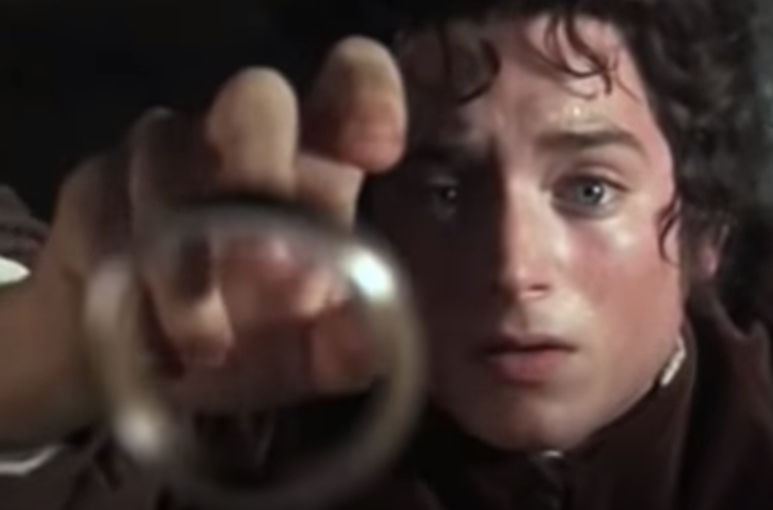
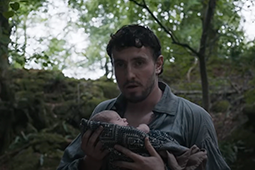
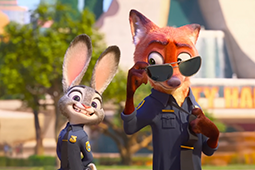
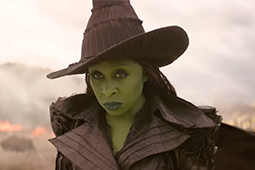
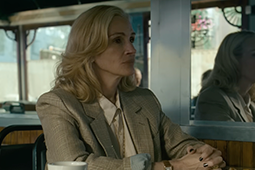
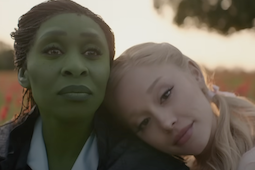
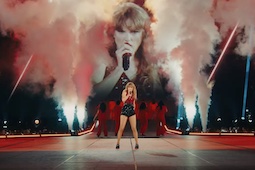
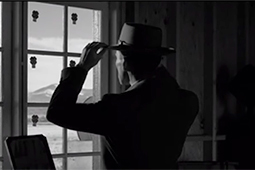



.jpg)
.png)





